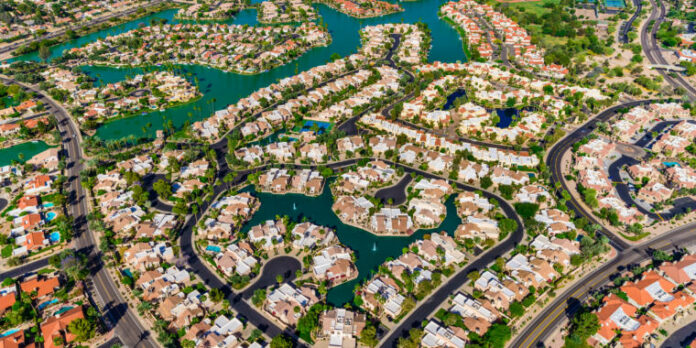The nation’s fifth-largest city and surrounding metropolitan area is officially tapped out of groundwater, Arizona Gov. Katie Hobbs announced Thursday, adding another item to the state’s long list of water woes.
By 2121, the Phoenix metro area will be short of nearly 5 million acre feet of water—enough water for around 17 million homes—under a new groundwater model released Thursday by the Arizona Department of Water Resources.
That means any new development in the region that hasn’t had its water guaranteed will have to rely on another source of water, such as the Colorado River and other local rivers, or on yet-to-be developed sources like desalinated ocean water, recycled wastewater, or groundwater pumped from other basins in the state, to ensure existing homes and developments have the water they need in the future.
Since 1957, Arizona’s population has surged 555 percent, while water usage has decreased 3 percent. Much of the state’s growth has come in the form of sprawling suburbs built on cheap land in the desert, which often relies solely on groundwater.
Sarah Porter, the director of Arizona State University’s Kyl Center for Water Policy, said Thursday’s announcement means developers will now have to weigh the cost of building on more expensive land that has an assured water supply, or find new water sources on land that can no longer rely on groundwater, as climate change produces intensifying droughts.
State officials cautioned the model shows the state’s groundwater laws are working and that Arizona’s water supply is secure and would only largely impact certain areas in the region.
When Arizona passed its Groundwater Management Act in 1980, the state decided it would keep track of groundwater in the most populated parts of the state, Porter said. With the modeling showing the Phoenix metro area is not adequately replenishing the groundwater it is taking out of its aquifer, the state is stopping growth on that finite resource.
“The regulations are working to prevent homes from being sold and then having no water,” Porter said.


